Deo Kato Is Close To Completing His 9,000-Mile Run From Cape Town To London
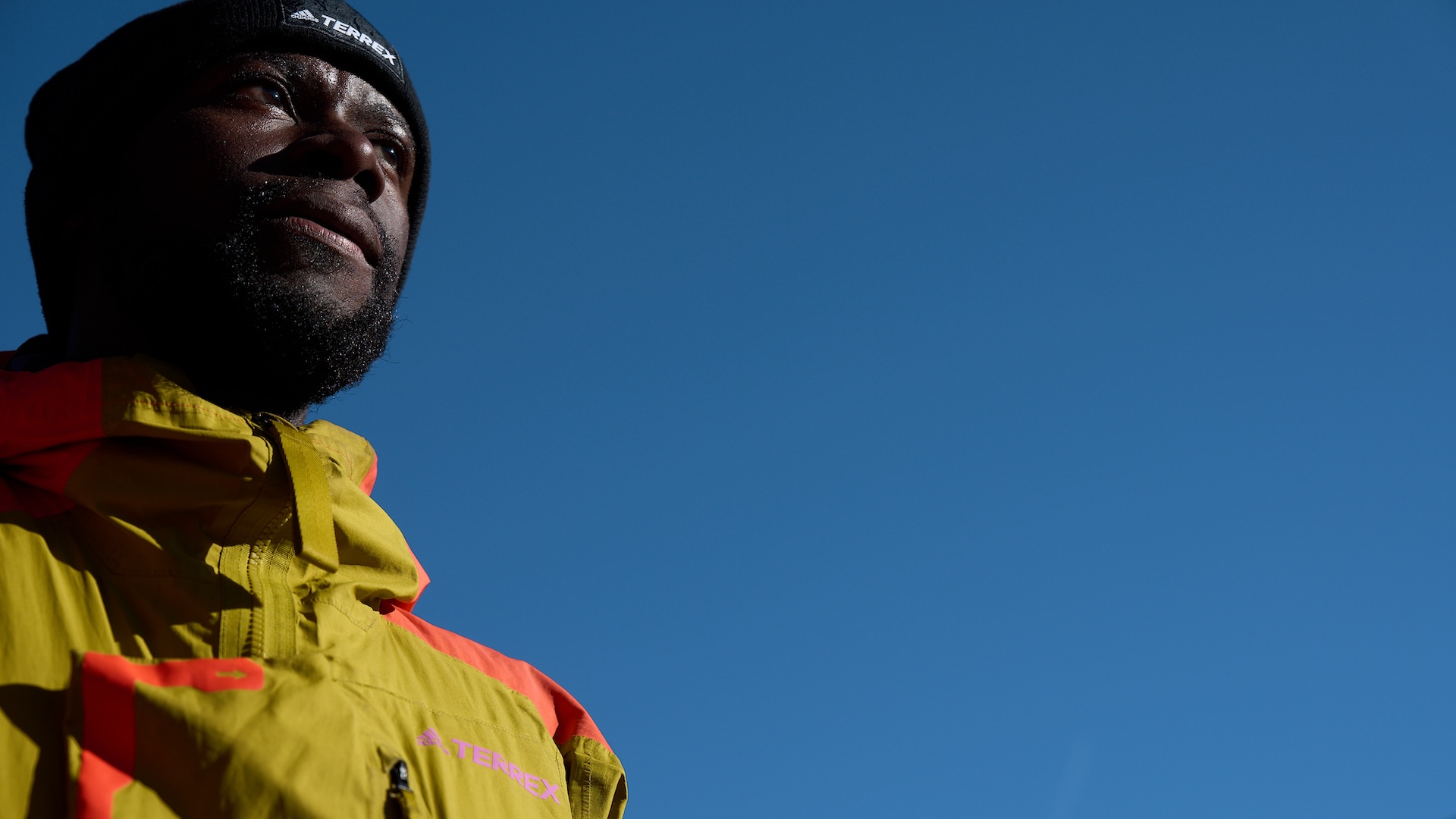
Deo Kato is 466 days into his 9,000-mile run from Cape Town to London when we speak in late October.
He ran 37km earlier in the day, and he needs to run the same again tomorrow, and at least that almost every day until he reaches London in time to finish on Sunday 22nd December, which will be day 518 of his incredible run.
When Ugandan-born Londoner Deo started on 24 July 2023, he hoped it’d take 381 days to run from the Long March to Freedom monument to Hammersmith Studios, becoming the first person to ever run that route. But he faced more obstacles than he ever could have imagined or planned for.
And while his reasons for taking on this challenge remain the same – to highlight the story of human migration from Africa, and to inspire the next generation and show that nothing is impossible – his experiences have shown him just how harrowing migration can be.
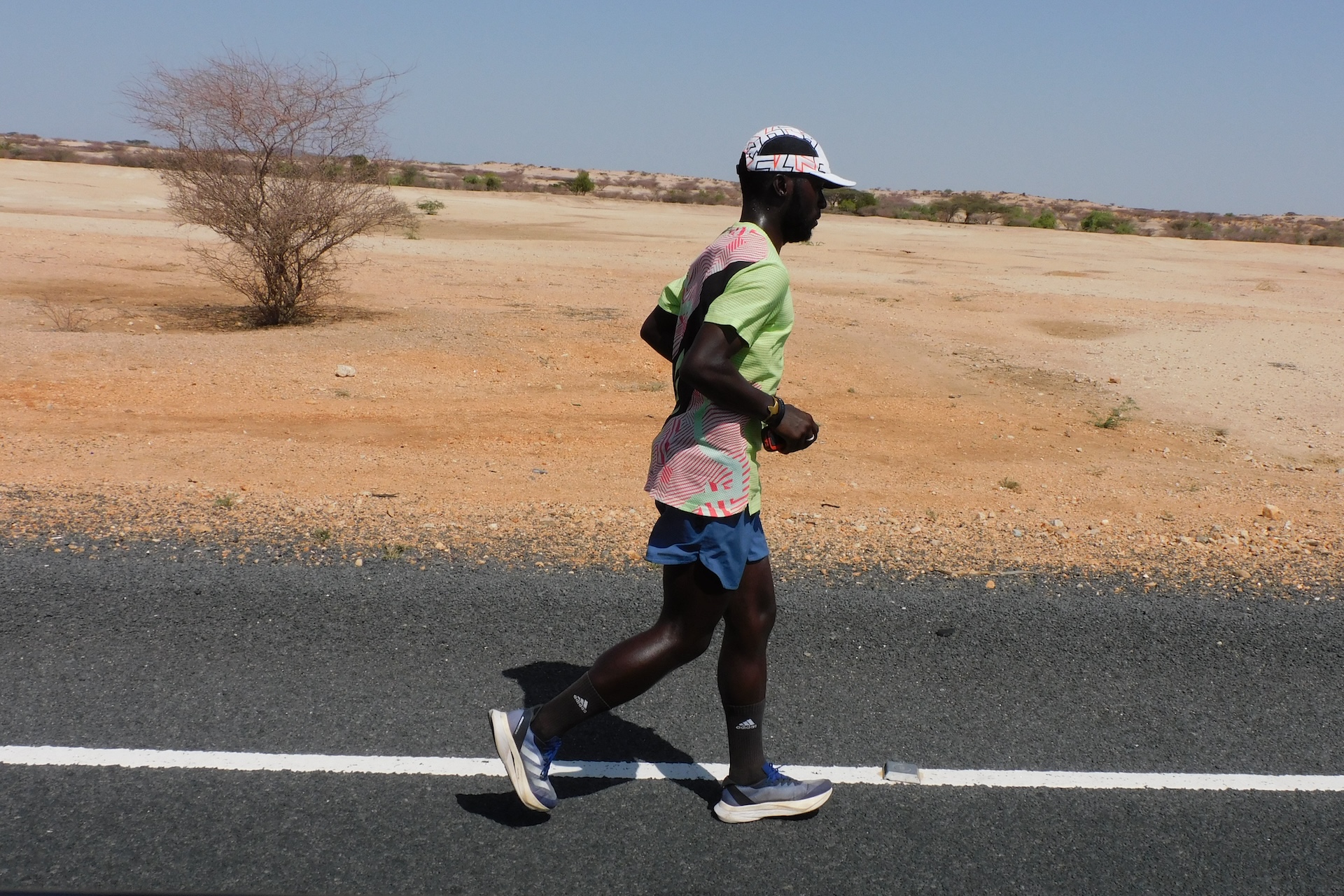
The run went up through Africa, heading to Cairo, Egypt. He went from winter in South Africa to desert in Botswana and rainy season in Tanzania, which was very heavy and led to several bouts of food poisoning.
East Africa was perfect for running, he says, and all through the continent that far the people had been warm and welcoming, running alongside him and cheering him and his crew on, but in north Africa things changed.
“This is where I had the biggest challenge – being arrested and going to prison.”
“I THINK IT HAPPENED FOR A REASON”
Deo didn’t want to go through South Sudan. From the beginning he wanted to avoid the country and its humanitarian crisis. But geopolitical issues made it the least bad route.
He was stopped numerous times in South Sudan, and each time he produced all the papers he needed. Until they asked for one he didn’t have.
On day 315, Deo and his Ugandan driver Molundo were put in prison.
They spent 11 days in the Riverside Jail, known as ‘Mosquito House,’ where they were held in a basement cell. Then they were moved to the Blue House, the headquarters of the country’s National Security Service in Juba. Deo spent 10 days in a cell with no space and no working lightbulb. Molundo was in a separate cell.
“The heaviest thing for me was being in prison and my family not knowing where I was,” he says. Communication back home ended abruptly and his partner, Alice Light, who has been managing the project from London, had no idea what had happened.
“All this time I didn’t know where they were,” says Alice. “I’d registered them missing. Presumed alive but I didn’t know. I kept a very positive face, but on the inside I was breaking up.”
When Deo and Molundo were released they were given no reasons for their imprisonment, and all their belongings were returned to them. They were free to go, but it took Deo some time to recuperate before he was ready to continue.
His run is telling the human history of migration, and how all humans ultimately came from Africa, but this became a dramatic way of experiencing how migrants get treated today, and has given Deo a true understanding of the difficulties they may face.
“Being told to go back where you came from, those are the soft things,” Deo says, “but being arrested and not knowing when they’ll be released, their families don’t know where they are or if they are alive or not alive. The families they leave behind are impacted as well,” he says.
“I didn’t know how to handle it, or even talk about it, because it was too heavy,” he said, but the months he’s spent alone since then have helped him to process what happened, and it’s “changed my perspective in looking at this journey and how people are treated,” he says.
“I think it happened for a reason, and that is to understand what happens when somebody migrates from one country – maybe they’re fleeing war, they’re fleeing something – and they go to a different country to find peace, but then they end up in a very difficult situation.” He now plans to find a way to “support migrants who are detained when people don’t know about them,” he says.
“Because the challenges you face don’t define where you’re going to end up,” he says.
And not all of the challenges were behind him.

RUNNING ACROSS EUROPE
Deo set off solo from Athens. Without a support crew and car, he was carrying everything he needed in a 15kg rucksack, and was slowed to a hike instead of a run.
He enjoyed the quiet of being by himself, he says, but it’s lonely. And Europe is different to Africa, especially for a black man walking alone on the side of the road with a large bag.
“The day I entered Croatia, I got stopped by the police five times in half an hour,” he says. “It’s because this route I’m travelling on, they have a lot of immigrants.” It was another reminder of the bigger story of what he’s doing and why.
With the weather changing and the Alps approaching, Deo was able to get a new supply of kit from adidas in Slovenia, swapping all his summer clothes for winter wear, and adding hiking boots alongside his Boston 12 running shoes.
More support came as he progressed through central Europe. More people have joined him, he’s had a support crew so has been able to drop his pack and run again, so progress is quicker. He’s been up and over the Alps, through Austria and is heading to Stuttgart in Germany. Next comes Luxembourg, Brussels, Lille (you can follow his progress on Strava and Instagram). Any support would mean something to Deo – some food or drink, some encouragement, sharing some miles, supporting his GoFundMe to cover his expenses.
Deo plans to arrive in Calais on 19th December, and will visit the refugee centre there the following day before crossing into Dover that night. He then plans to run 47km on both the 20th and 21st December, before the final run of 20km from Greenwich to Hammersmith Studios on Sunday 22 December.
There are less than four weeks left of Deo Kato’s epic journey of becoming the first person to ever run from Cape Town to London.
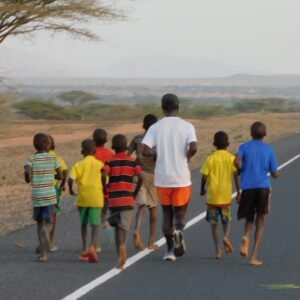
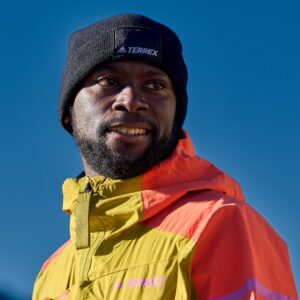
“YOU HAVE TO SOMEHOW PERSEVERE”
The challenge has been harder and longer than he anticipated, and he’s faced experiences he never could have imagined.
“Sometimes I really feel extremely low. I think to myself wow, what am I really doing,” he says, “but the things I’ve gone through and have experienced along the way, they keep me going. I’ve managed to get through all those challenges.”
Now he wants to tell positive stories about good people.
“I’ve managed to meet so many incredible people, and that pushes me to keep going. There have been a lot of kind-hearted people throughout the journey,” he says, and that connects to the fundamental idea of the run, that all humans came from Africa, and “we are all part of one family.”
Next Deo wants to write a book about the journey, and a children’s book which he can take with him into schools to tell the story of human migration, with a greater goal of having it as part of the curriculum. He also hopes that he’s been able to inspire young people, “and tell them that nothing is impossible,” he says.
“You face a lot of challenges along the way trying to chase your dream, but you have to somehow persevere and keep chasing that goal. You can keep picking yourself up and keep going.”
If you want to support Deo then you can visit his GoFundMe. And if you wish to join for the final leg as Deo runs from Greenwich to Hammersmith, then you can register here.



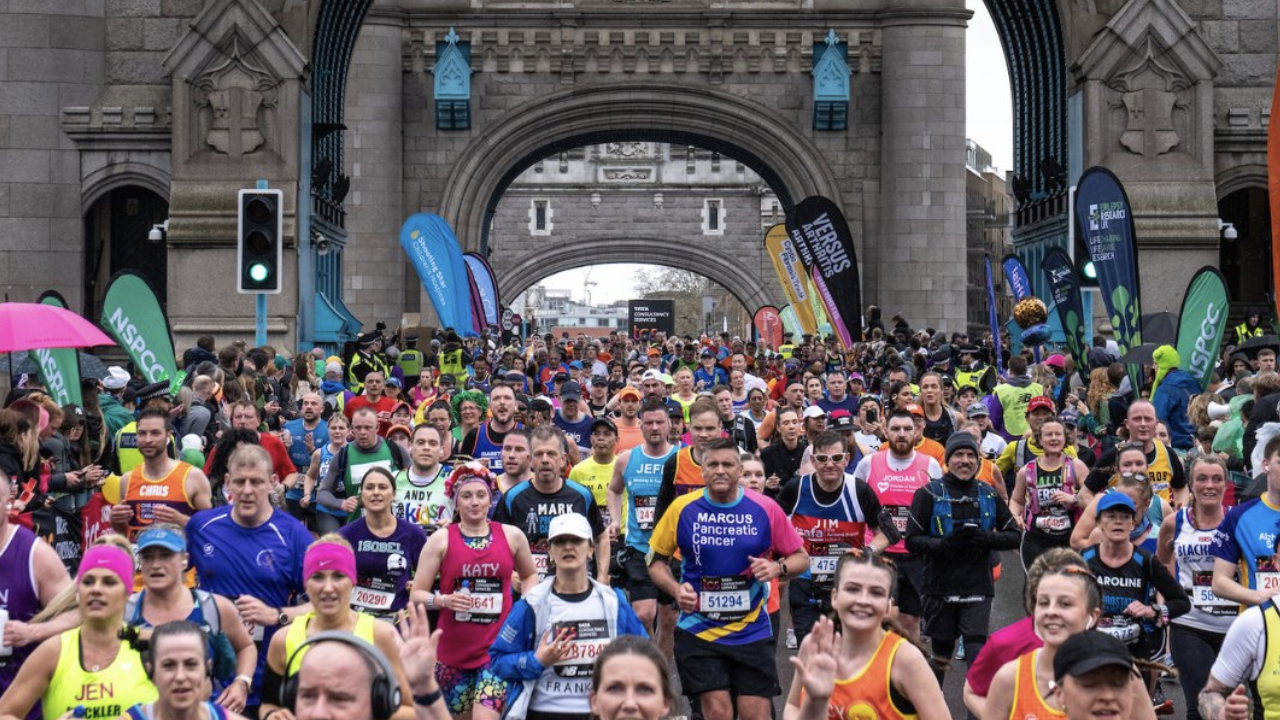

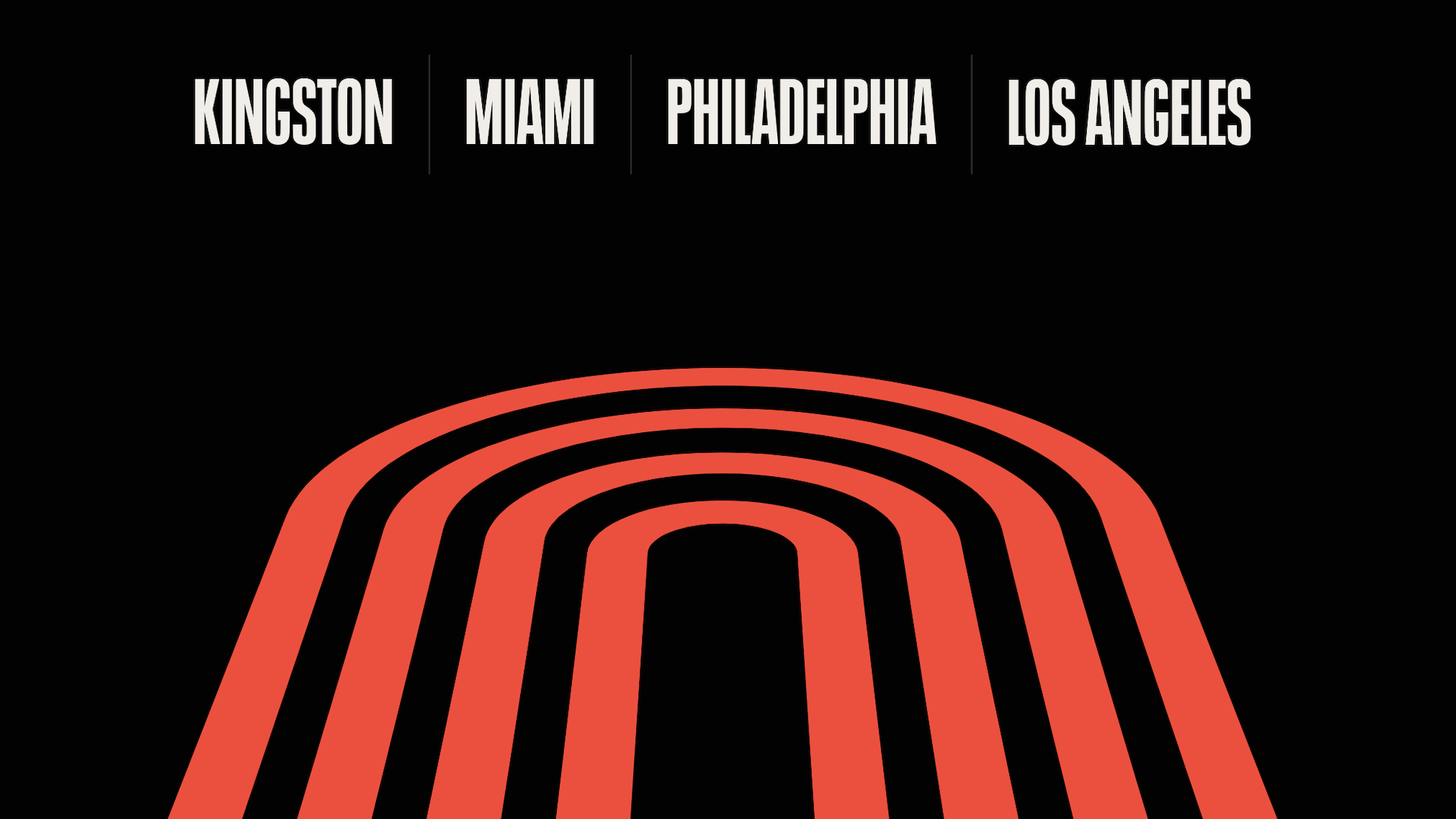






















Running News
Ingebrigtsen Stars at World Athletics Indoor Championships 2025 – Plus All The Winners!
Sam Ruthe Is First 15-Year-Old To Run A Four-Minute Mile!
Eliud Kipchoge Will Run The 2025 Sydney Marathon!